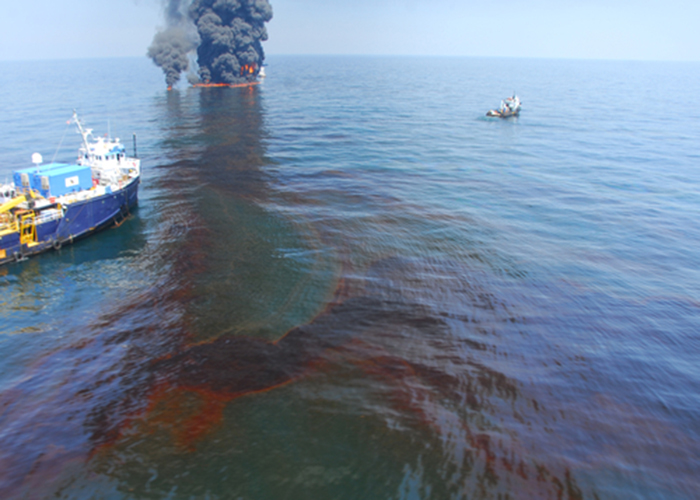
A study led by Louisiana State University (LSU) Health New Orleans School of Public Health reports that women exposed to the 2010 Deepwater Horizon (BP) Oil Spill continue to experience symptoms of trauma and post-traumatic stress disorder (PTSD). The results are published in the Journal of Affective Disorders.
“This is the first investigation reporting trauma and PTSD in our Louisiana cohort, with findings suggesting that women in this study report notably high levels of trauma as well as a high prevalence of probable PTSD,” notes study senior author Edward Peters, DMD, SM, SM, ScD, Professor and Program Director of Epidemiology at LSU Health New Orleans School of Public Health. “Unfortunately, less than half reported receiving past-year mental health treatment despite the high levels of PTSD symptoms, which suggests that many affected women may not be receiving needed mental health care.”
The research team, which also included researchers from Brown University, the National Institute of Environmental Health Sciences (NIEHS), and Brigham and Women’s Hospital, studied 1,997 women from seven coastal Louisiana parishes affected by the spill (Orleans, St. Bernard, Jefferson, Plaquemines, Lafourche, Terrebonne and St. Mary) who were enrolled in the Women and Their Children’s Health (WaTCH) Study. The researchers sought to better understand post-disaster symptomatology, particularly women’s mental health. They found five distinct types of PTSD symptoms – low, moderate without mood alterations, moderate with mood alterations, severe without risk-taking, and severe with risk-taking.
Findings also include:
- Women with a low-symptom profile had fewer traumas and socioeconomic risk factors.
- Women with severe PTSD symptoms had more traumas and socioeconomic risk factors.
- Most women with severe PTSD symptoms had no prior PTSD diagnosis.
The researchers’ analysis reveals that a sizable number of women in WaTCH study communities suffer from PTSD symptoms, with roughly 13% of their sample meeting or exceeding the score threshold for probable PTSD on the PTSD Checklist, and even more women reporting subthreshold levels of PTSD symptoms.
“Our study continues to observe that women in southeast Louisiana have a high burden of mental health disorders,” adds Dr. Peters. “In addition to the current study, earlier publications by our team have also observed high levels of depression and mental distress in this population.”
The authors conclude that addressing mental health and access to mental health care is important in the population highly affected by the BP Oil Spill. This population also experienced other disasters, including Hurricane Katrina. With a rising number of disasters, those living in southeastern coastal Louisiana, a particularly vulnerable region of the United States, are at higher risk for PTSD and other mental health disorders.
The authors report that the study was limited by use of self-reported data and one-time assessment of PTSD symptoms.


